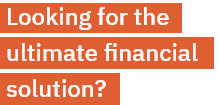Introduction
Choosing a home loan is a crucial step in buying a home, but it often comes with a big question: should you go for a fixed or variable interest rate? This choice can significantly impact your financial future, especially when you're putting so much into your new home. With interest rates constantly changing, making the right decision might seem daunting. Our goal is to simplify this decision for you through this blog.
In this blog'll break down the differences between fixed and variable rates, helping you understand how each work and which might best fit your situation. Whether you're a first-time buyer or considering refinancing, understanding these options is critical to making an informed choice that aligns with your financial goals.
Key takeaways
- Choosing between fixed and variable home loan rates depends on personal circumstances and financial goals.
- Fixed-rate loans are ideal for those on a tight budget seeking stable monthly repayments.
- Variable-rate loans suit borrowers with extra funds for additional payments and who can navigate market fluctuations.
- Market conditions play a crucial role in deciding between fixed and variable rates.
- Consulting with a financial advisor or mortgage specialist can provide valuable guidance in making the right choice.
What is a fixed-rate home loan?
A fixed-rate home loan means that your mortgage interest rate and monthly repayments will remain the same for an agreed period This period varies but is generally between one and five years. This type of loan provides predictability in monthly and annual repayments, as borrowers are not affected by fluctuations in interest rates during the fixed term.
Once the term expires, the loan usually switches to a variable rate. However, borrowers may be able to negotiate another fixed term or explore different financing arrangements with their loan provider.
What are the pros and cons of fixed-rate home loans?
Here are some pros and cons to consider before deciding on a fixed-rate home loan:
Predictability and stability: One of the most significant advantages of a fixed-rate home loan is its predictability. Borrowers know exactly their monthly repayment for the entire loan duration. This stability allows borrowers to plan their finances more effectively and avoid unexpected monthly budget changes.
Protection from rate increases: Fixed-rate loans protect against rising interest rates. If the market rates increase, the borrower's interest rate remains unchanged. This can benefit borrowers on a tight budget and cannot afford sudden increases in their monthly repayments.
Higher initial interest rates: Fixed-rate loans often start with a higher interest rate than variable-rate loans. If interest rates remain stable or fall, you could pay more over the fixed period than with a variable-rate loan.
Penalties for early repayment: One of the biggest drawbacks of fixed-rate home loans is the potential penalty for early repayment. You may face significant break costs or fines if you decide to refinance, sell your home, or pay off your loan early.
Less Flexibility: Fixed-rate loans typically offer less flexibility than variable-rate loans. Features, like redraw facilities and offset accounts, may not be available or come with additional fees and restrictions. This lack of flexibility can disadvantage borrowers who want more control over their finances.
Limited Opportunity for Rate Discounts: Fixed-rate loans generally do not offer the opportunity for discounts or special promotions that variable-rate loans may have. This means you could miss out on potential savings and additional benefits with a variable-rate loan.

What is a variable-rate home loan?
A variable-rate home loan, also known as an adjustable-rate mortgage (ARM), is a type of mortgage where the interest rate can change over time. This means the borrower's monthly repayments can increase or decrease depending on market conditions and loan terms.
Variable-rate home loans usually have a lower initial interest rate compared to fixed-rate loans, thus making them an attractive option for borrowers looking for more affordable monthly payments. However, as the interest rate can change at any time, this type of loan carries the risk of potentially higher repayments in the future.
What are the pros and cons of variable-rate home loans?
Benefit from rate drops: If the lender reduces rates, those on variable-rate loans will benefit from lower repayment amounts. This reduction can lead to significant savings over time.
Access to Loan Features: Many variable rate loans offer features like offset accounts and redraw facilities, which can help a borrower save on interest payments. These features allow the borrower to reduce their loan balance by depositing extra funds into an offset account, making additional repayments, and then accessing those funds if needed.
Flexibility: Variable-rate loans offer more flexibility regarding changing market conditions. Borrowers can switch to a fixed-rate loan if interest rates rise or continue with their variable rate if interest rates fall. This gives borrowers more control over their loans and allows them to decide based on their financial situation.
No Early Repayment Penalties: Unlike fixed-rate loans, variable-rate loans typically do not have early repayment penalties. This means borrowers can make extra payments or pay off their entire loan without additional fees. This can benefit those who come into extra funds or want to repay their loan sooner.
Higher risk: The main disadvantage of variable-rate home loans is the risk of interest rate increase, leading to higher monthly repayments. If interest rates rise, borrowers may struggle to pay their mortgage or refinance their loan at a higher rate.
Unpredictability: Variable-rate loans do not offer predictability and stability like fixed-rate loans. Borrowers are at the mercy of market fluctuations, and their repayments can vary widely over the loan term.
Limit budgeting stability: The uncertainty of interest rates and the potential for higher repayments can make budgeting more difficult with a variable-rate loan. Borrowers may have to constantly adjust their budgets, which can be challenging for those on a fixed income.
No Early Repayment Penalties: Unlike fixed-rate loans, variable-rate loans typically do not have early repayment penalties. This means borrowers can make extra payments or pay off their entire loan without additional fees. This can benefit those who come into extra funds or want to repay their loan sooner.

Choosing between fixed or variable
Deciding whether or not to fix your home loan depends on your personal circumstances and your future goals and plans. Fixed-rate loans can appeal to those on a tight budget and want the security of knowing exactly how much their mortgage repayments will be each month. On the other hand, variable rate loans provide flexibility for those who may have extra funds to make additional payments towards their loan.
It's important to consider the current market conditions when making this decision. If interest rates are predicted to rise in the near future, fixing your loan can protect you from potential increases. However, a variable rate may allow for lower overall interest payments if rates are low and expected to remain stable.
Another factor to consider is how long you plan on keeping the property. If you plan to sell within a few years, a variable rate may be more beneficial as it often has lower exit fees than fixed-rate loans. However, if you plan on staying in the property for a longer period, fixing your loan can provide stability and peace of mind.
It's also important to look at any potential fees associated with each type of loan. Fixed-rate loans often have restrictions and penalties for making extra payments or paying off the loan early. In contrast, variable-rate loans may have lower fees and more flexibility. Carefully analysing the fees and potential costs can help you make an informed decision.
A home loan is a long-term commitment, and your personal circumstances are likely to change over time. It’s important to revisit the rate you pay at various points to ensure it still suits your needs. Refinancing or switching to a different type of loan may be beneficial if your circumstances have changed significantly.
Considering refinancing or in the market for a new loan?
ZedPlus can connect you with over 40 lenders to ensure you find the best deal.
If you still can’t decide between fixed and variable rates, consider splitting your home loan.
A split-rate home loan combines fixed and variable-rate loans by dividing your mortgage into separate portions. Typically, you might have two segments: one locked at a fixed interest rate and the other subject to changing variable rates. This setup allows you to enjoy the stability of fixed rates and the flexibility of variable rates simultaneously.
You have the freedom to choose how you split your loan. It could be evenly at 50:50, slightly weighted at 60:40, or more heavily at 80:20, depending on what suits your financial strategy best
Example:
On a $500,000 mortgage, a 50:50 split means $250,000 would have a fixed rate, while the other $250,000 would vary. Or, with a 60:40 division, $300,000 would be fixed, leaving $200,000 at a variable rate.
A split-rate home loan can be an excellent option for borrowers unsure about which type of interest rate they should choose. It offers the best of both worlds, balancing stability and flexibility.
Conclusion
Both fixed and variable-rate home loans have their advantages and disadvantages. It's essential to carefully consider your personal circumstances, financial goals, and the current market conditions before deciding which type of loan is best for you. Consulting with a financial advisor or mortgage specialist can provide valuable insight and guidance when making this decision.
At ZedPlus, we understand that choosing between a fixed and variable interest rate for your home loan is a crucial decision that can profoundly impact your financial future. We are committed to providing you with the support and guidance you need to make an informed choice that aligns with your unique needs and goals.
Whether you prefer the stability of a fixed-rate loan or the flexibility of a variable-rate loan, our team is here to assist you every step of the way. Contact us today to learn more about our home loan options and find the best fit for you.



